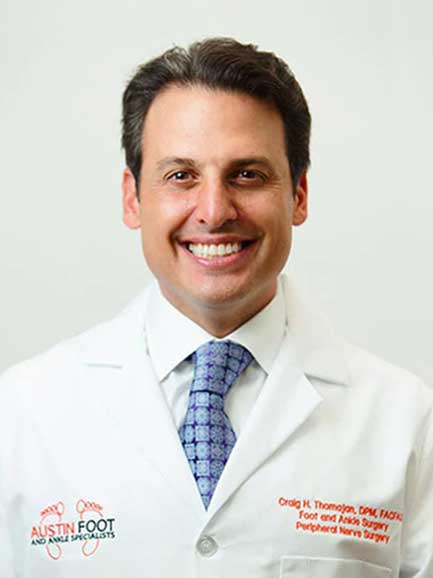If you have a foot wound, you may wonder how long it will take to heal. Because healing depends on a person’s individual health and how the wound is being treated, there is no one-size-fits-all time frame for recovery. But knowing the various stages of wound healing can help give you a general idea of recovery time. If you have concerns about the time it is taking your foot wound to heal, contact an Austin wound care podiatrist for a consultation. 
How Wounds Heal
No matter how a wound happens, your body reacts immediately to begin the healing process.
Often, a scraped knee, a surgical incision, or a bruise or laceration heals quickly and without a problem. However, some wounds take longer to heal. Regardless of the cause, the healing stages are the same.
The Stages of Wound Healing
- Hemostasis. This first stage of wound healing begins when your body works to stop the bleeding by forming a clot. Hemostasis usually happens quickly; however, if your wound continues to bleed, it’s important to see a podiatrist.
- Inflammation. During the inflammation stage, white blood cells rush in to take care of any bacteria or debris in the affected area to help prevent infection. In this stage, swelling, redness, and pain are common symptoms.
- Proliferation. This stage happens when new tissue begins to form over the wound site as collagen fibers knit together to help stitch up the wound from within.
- Remodeling. In the remodeling stage, newly formed skin matures into its final shape and size.
How to Know Your Foot Wound Is Infected
If your foot wound does not appear to be healing properly or if there is redness around the affected area that is spreading or getting worse over time, it could be a sign of infection at your foot wound site.
Other Signs of Infection
- Increased pain or tenderness around the site of the injury
- Pus or drainage oozing from the wound
- Hot or warm to the touch
- Foul odor from the wound
If you suspect you have an infected foot wound, contact your doctor immediately, as treatment, such as antibiotics, may be necessary for proper recovery and healing.
Risks for Those With Diabetes
If you have diabetes, it is especially important that you seek medical attention for a foot wound as soon as possible. Recognizing the signs of a foot wound and doing a daily self-check of your feet can help you prevent severe complications.
Since those with diabetes often experience slower healing times due to reduced blood flow and potential nerve damage in their feet, a wound care podiatrist may recommend special treatments such as antibiotics to reduce any potential risk of infection associated with diabetic wounds.
Other Conditions That Can Delay the Healing of a Foot Wound
- Vascular disease
- High blood pressure
- Obesity
When to See a Podiatrist for a Foot Wound
While minor foot wounds such as a small cut or scrape may heal on their own with proper care, others that are deeper or more severe may require stitches or medical treatment right away to prevent permanent damage or infection.
Because a foot wound can take a few weeks or months to heal completely, your podiatrist will determine the best course of treatment during the healing process. Treatment may consist of the following:
- Washing and covering the wound
- Applying topical treatments and ointments
- Taking medication such as antibiotics
- Debriding the wound to remove dead tissue or debris from the wound
- Using therapy to improve blood flow
If a foot wound is left untreated and does not heal properly, it can result in the following:
- Infection
- Gangrene
- Amputation to save your life
Contact Our Austin Podiatrists
If you have signs of a foot wound, contact our skilled podiatrists at Austin Foot and Ankle Specialists for an evaluation. We can provide various advanced treatment options based on your individual needs. To schedule an appointment, contact us online, or call our office at 512-328-8900.
|
Related Links: |

